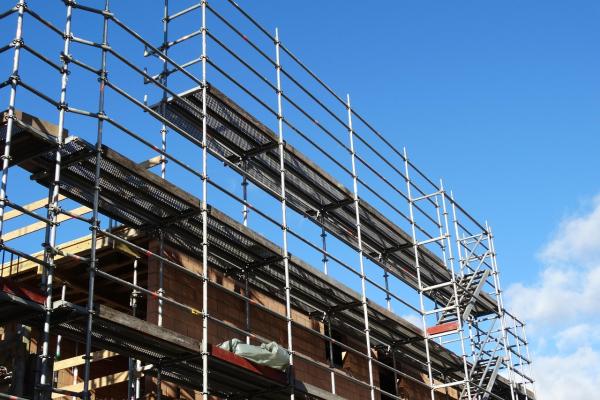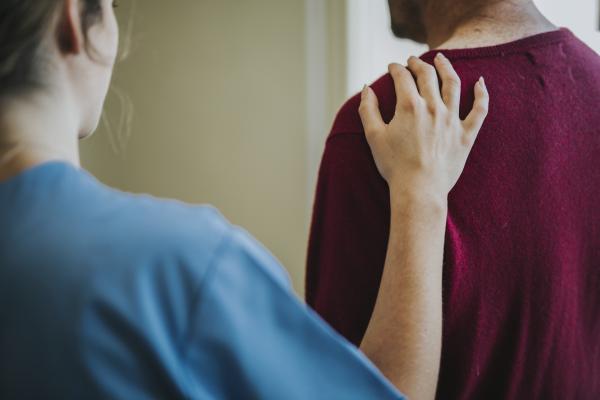Personal Injury Solicitors in Brighton
Criminal Injuries Claims
One of the lesser known types of personal & fatal injury claim are those that stem from violent or sexual criminal attacks. Victims can often not be provided with the information they need or can be daunted by the prospect of making a criminal injuries compensation claim after such a traumatic event.
Compensation is available from a government body known as the Criminal Injuries Compensation Authority (known as the CICA) and covers a wide range of injuries from physical to psychological stemming from crimes from assaults, attempted murders, rapes and arson attacks just to name a few. Importantly, you do not need to face your attacker again to bring a claim. This is an independent process provided the crime was originally reported to the police.
Criminal Injury Claims can also be made by family members who have sadly died as a result of a violent crime.
Criminal Injury claims compensation
Available of up to £500,000
- An injury is suffered
- A loss of earnings
- Equipment & Therapy
- Care
- Professional Deputy Costs (where a victim cannot manage their own affairs anymore)
- Bereavement & Dependency costs
- Funeral Costs
In 2014-15 only 304 claims were lodged with the CICA in the Brighton area yet there were just under 13,500 violent or sexual crimes reported to Sussex Police. This means nearly 98% of people who might be entitled to compensation may not be applying for money they are entitled to.
Please click here to read the most common questions we get asked about CICA claims and our responses. For more information on CICA claims and what the scheme is, please visit www.gov.uk/government/organisations/criminal-injuries-compensation-authority
Why Instruct a Solicitor
Criminal Injury Claims
At Dean Wilson, we have been able to help clients with a wide range of injuries maximise the compensation they are entitled to. When you have a claim, clear information needs to be given if a victim has suffered a loss of earnings, requires further equipment or treatment and if any care is required, all of which will increase compensation. Our team have been able to secure 5 and 6 figure sums of compensation for clients where originally they were offered far less by the CICA.
How Much Do criminal injury claims cost?
Compensation
In assisting in these times of claim we at Dean Wilson offer our clients what are known as a “contingency fee agreement.” What this means is that in the event that the CICA do not offer any compensation, you would not pay our legal fees (except any disbursements for things like medical records). If you are awarded compensation by the CICA, we charge up to a maximum of 25% of the compensation awarded to you in payment of our fees. Therefore, if for example you were awarded £10,000, the most you would be charged is £2,500.
If you have been a victim of such a crime, please contact either Alex Brown or Ben Davey in our Criminal Injuries Team who will happily have an initial discussion about your claim, free of charge.
Got Some Questions?
We've got you covered
If your criminal injury case was reported to the police, you can claim compensation through CICA, which will mean you do not need to go to court and you do not need to face your attacker. See more personal injury FAQ’s here.
If you have sustained an injury through a criminal attack, whether it was violent or sexual, you are eligible for the physical and psychological effects this has had on you. If your injuries have caused you loss of earnings, you can also claim for that. See more personal injury FAQ’s here.
Yes you are. Every person in England and Wales who is a blameless victim of violent and sexual crime is entitled to compensation. Victims under 18 can have applications made on their behalf.
A violent crime is someone who assaults another person physically or causes immediate fear of harm either intentionally or recklessly that causes either physical or psychological injury. This includes sexual assault where there was no consent and fire/arson attacks.
No – Provided the violent crime has been reported to the police, there is no need for the attacker to be convicted. In some cases there may not be enough evidence to convict a person or police error may result in no criminal prosecution but you could still be entitled to compensation.
No – The compensation is paid from a government body specifically setup to pay compensation to victims of violent and sexual crime up to a maximum of £500,000 per person.
No – Do not delay in looking to make a claim. You only have 2 years from the date of the attack to make an application for compensation. If you wait until after a criminal trial, you may miss this deadline.
No – When you make an application to the Criminal Injuries Compensation Authority (CICA) they will request the police file and review what happened to you. They will then consider what medical evidence they might need to assess your injuries. There will be no involvement directly with your attacker when making a claim nor will they be notified.
The process is very easy to get started. You simply visit the Criminal Injuries Compensation Authority website at www.cica.gov.uk. Once there you simply follow the instructions to apply for compensation which involves filling in a form or having someone make the application on your behalf.
The CICA will usually request the police file and for your consent to access your medical records to assess the injuries you have sustained. Often they will ask you to attend a medical examination (possibly several) to clarify the exact injuries suffered and what further effect they will have on you and what treatment you might need.
Yes – Provided the injury suffered causes the loss then you can claim for things such as loss of earnings, treatment costs, adaptations to a property and certain type of care.
This is a difficult question, the CICA is a very overworked body and claims can be slow in being processed. It can take up to 2-3 years in some cases to reach a conclusion.
This is up to you. Your local Citizens Advice Bureau (CAB) can often be a good start point for advice about a claim. www.citizensadvice.org.uk
A solicitor can assist greatly in ensuring that you receive the correct amount of compensation for the injuries suffered, especially in cases where the extent of the injuries may not be clear to the Criminal Injuries Compensation Authority. The CAB can advise you of local solicitors who may be able assist you.
Solicitors will often work on a ‘no win, no fee basis’ so if you do not obtain any compensation, you do not have to pay them. If you are successful, the can charge up to a maximum of 25% of any compensation you obtain. You can however pursue a claim for compensation yourself.





